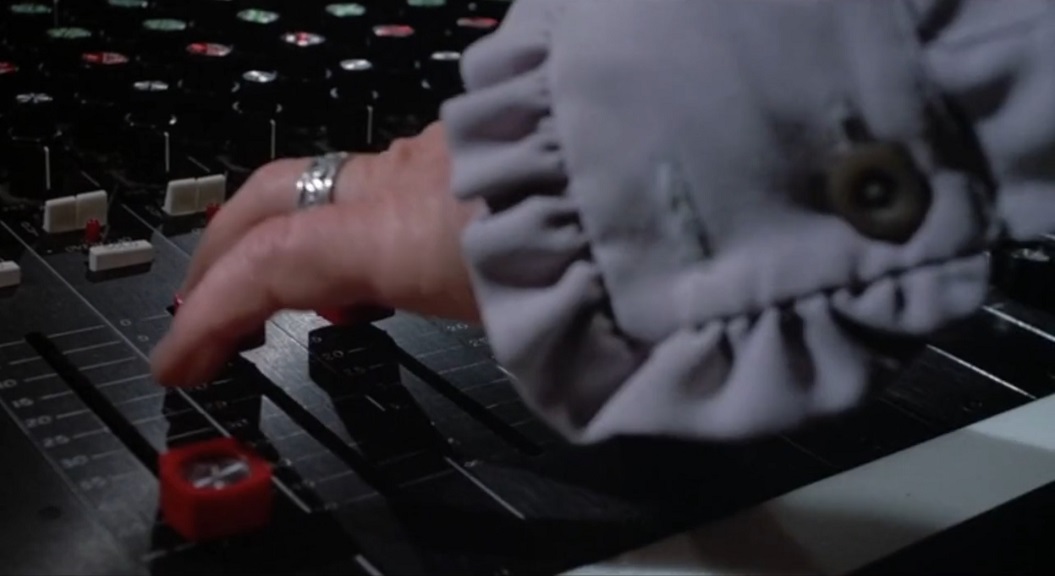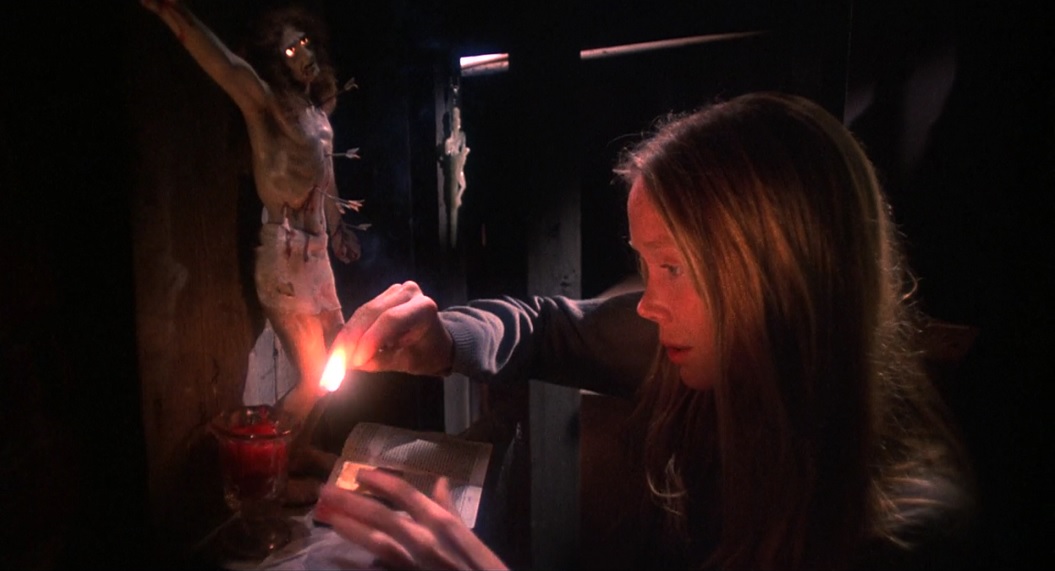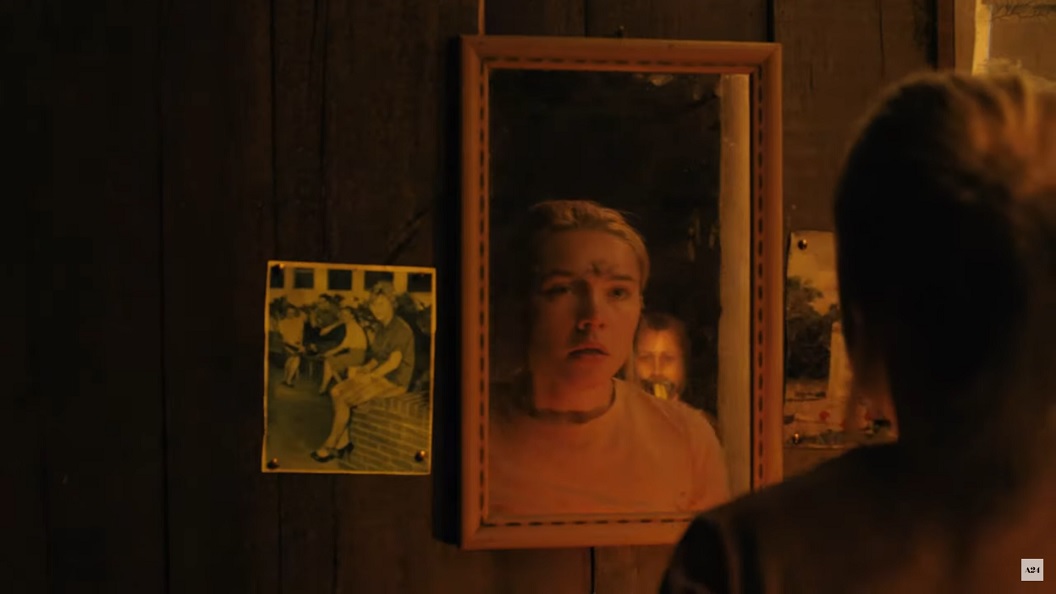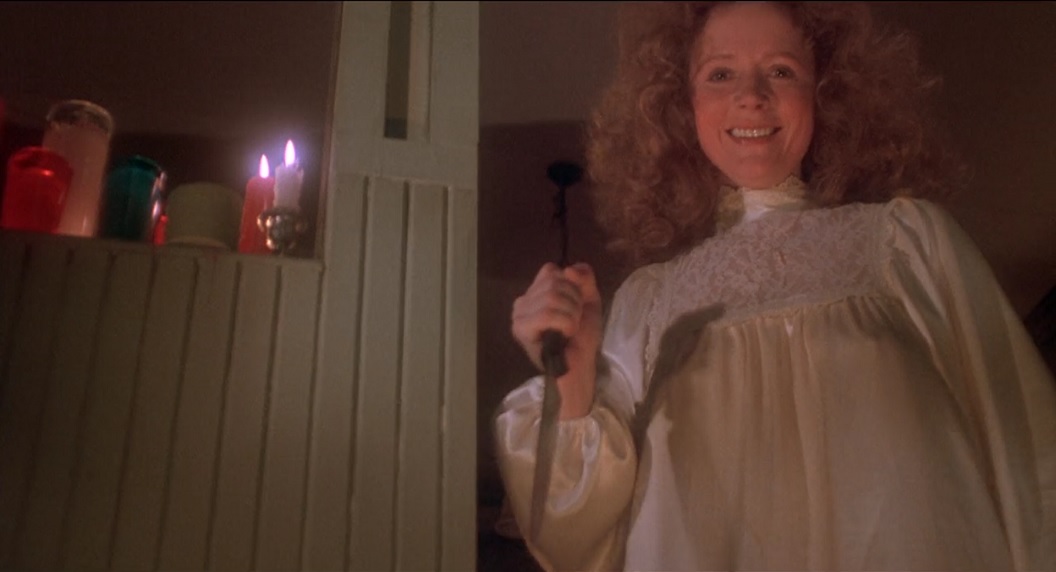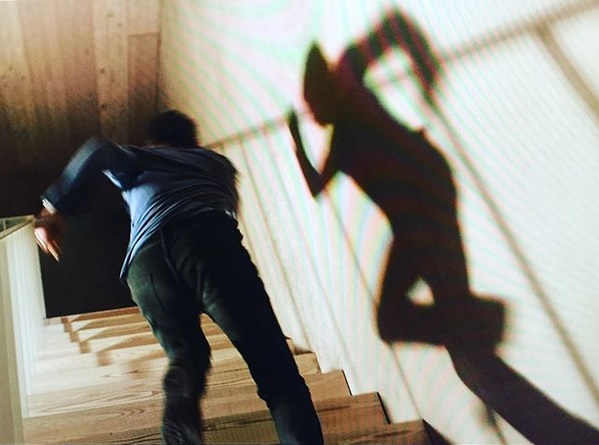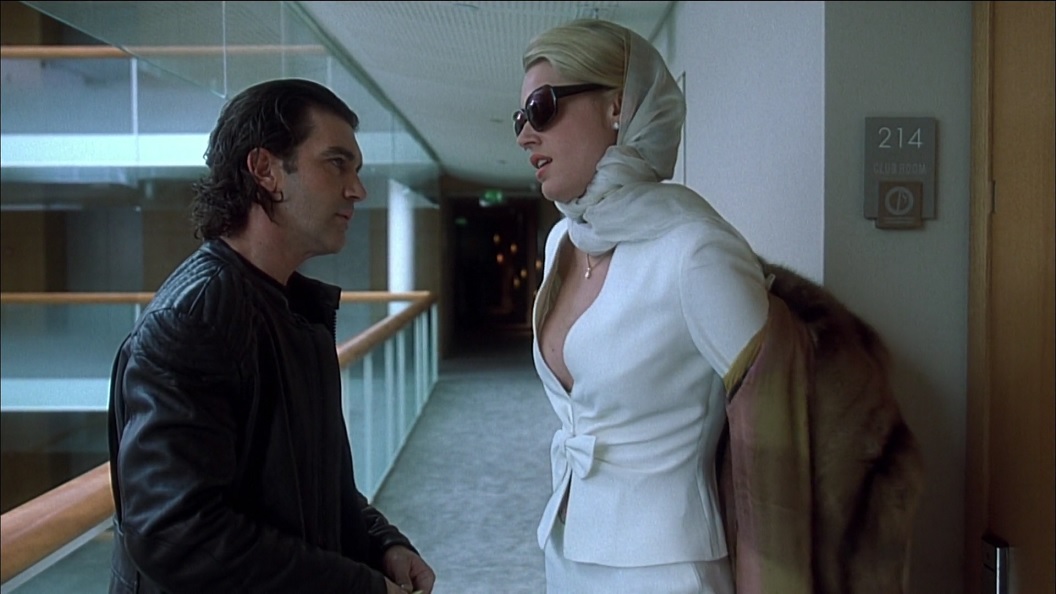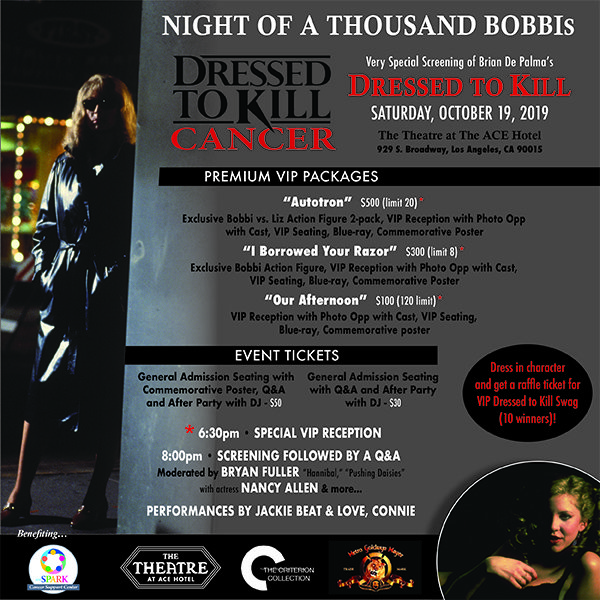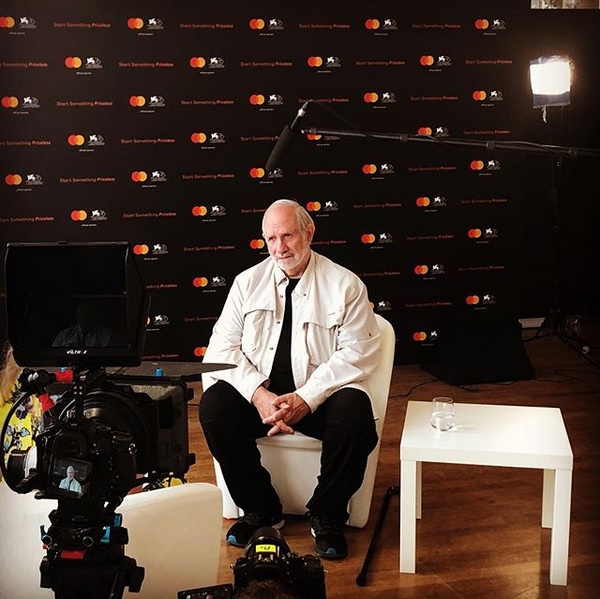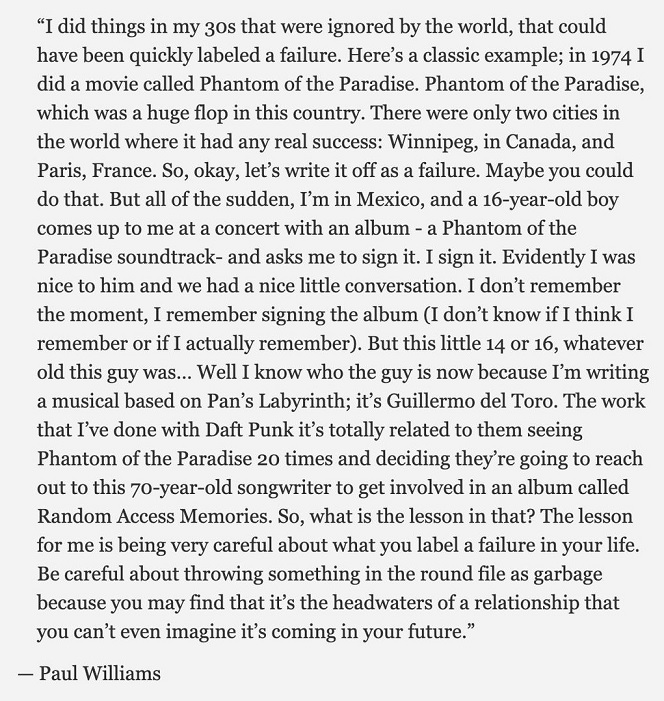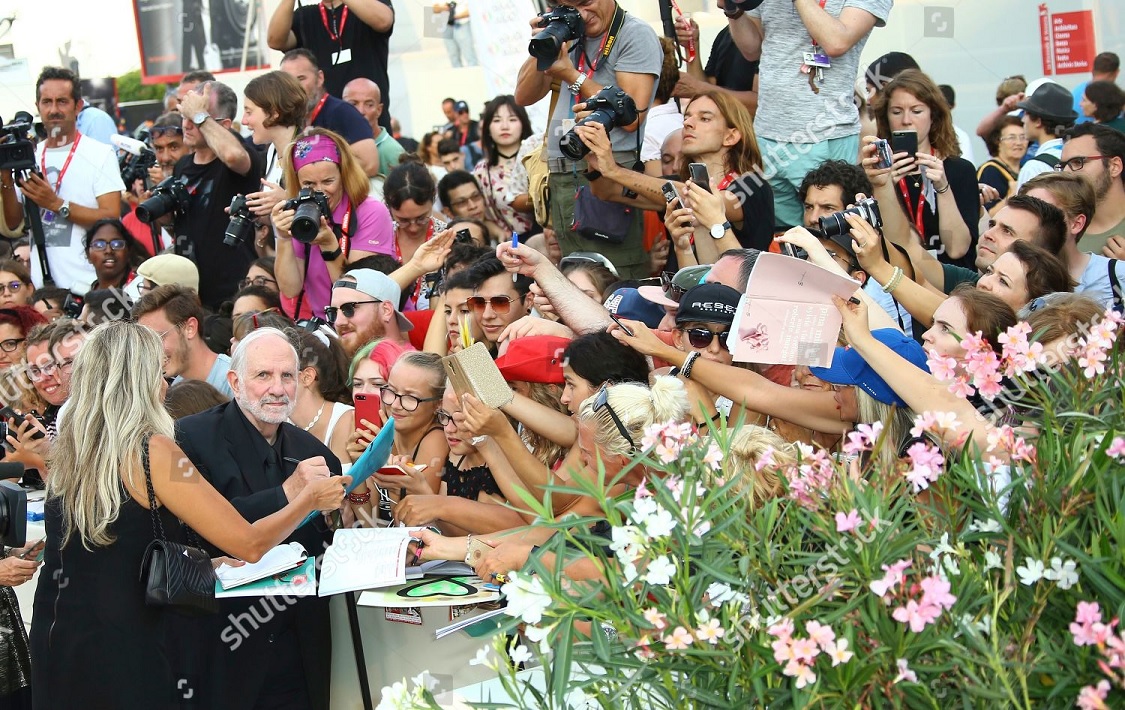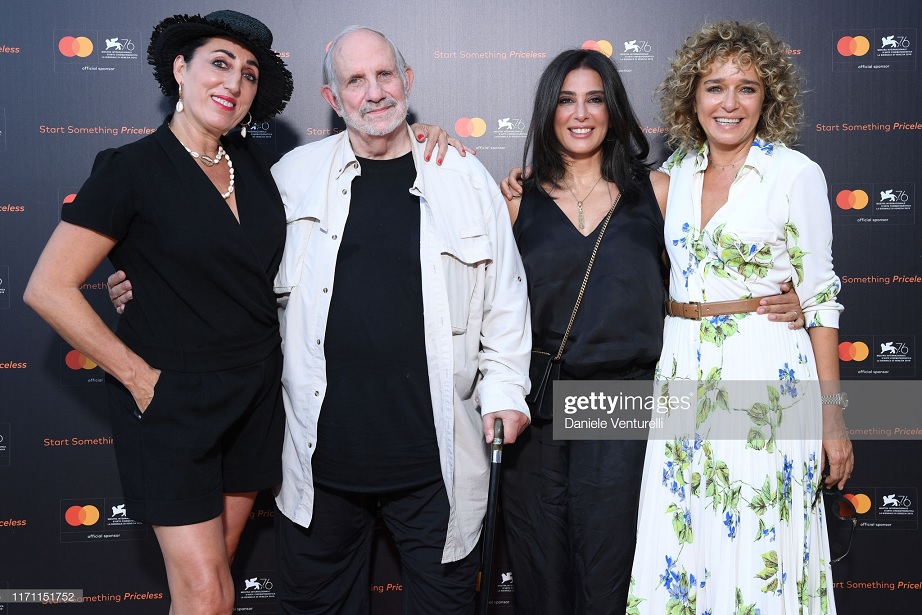ALSO, MAKING UP A FICTIONAL CIA SECURITY SYSTEM; DISCARDED UNDERWATER OPENING FROM 'SNAKE EYES'
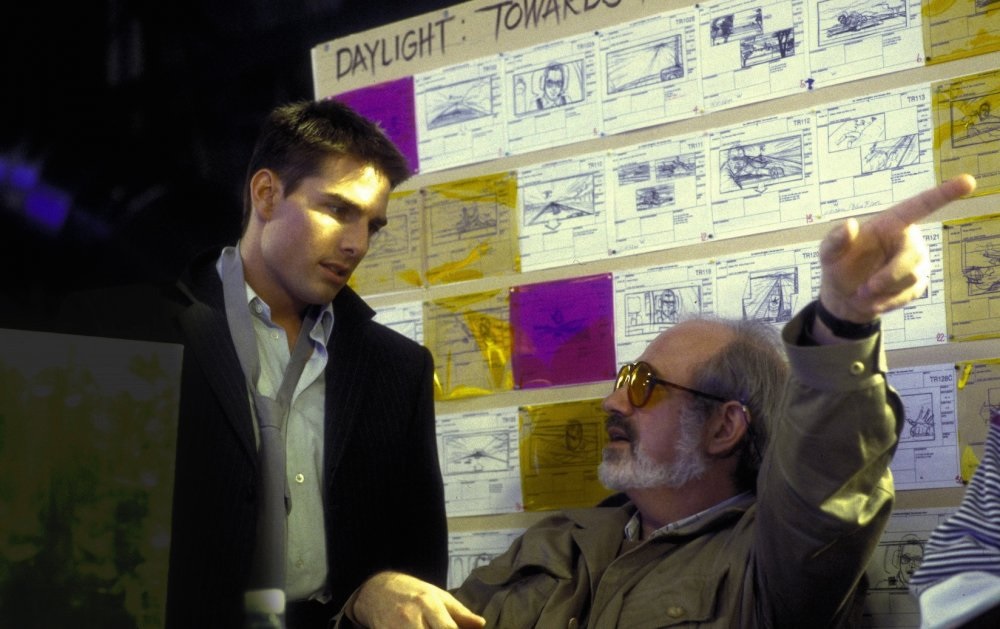
David Koepp, promoting his debut novel Cold Storage, was asked some questions by Thrillist's Jennifer Vineyard that led Koepp to talk about his work with Brian De Palma on Mission: Impossible and Snake Eyes:
What's it like when you've been hired as a writer for a project based on someone else's vision, when they might let you go and have someone completely rewrite what you've done? Or when someone has done that to you? Is it weird working out all the credits?
Koepp: It's very messy. There were a couple movies where I was hired and fired multiple times, on the same movie. And that's the way it goes with some movies, big expensive movies where there are powerful people involved. They have a script, they don't like, they want to start over. Steve Zaillian wrote a treatment for Mission: Impossible with Brian De Palma, and then Steve had another commitment that he had to go to, so he couldn't write the script. My suspicion is that he got a whiff of what it was going to be like, and ran! [Laughs]Tom Cruise was producing it, and it was his first time producing his own stuff. Brian's an auteur, and Tom's an auteur, so there was bound to be a lot of conflict. I came on, and I wrote several drafts, and things were going great. Then Paramount said, "We don't have any notes. We want to shoot it," which is the worst thing to say to Tom, because he is a perfectionist, and he never wants to stop tinkering. And if somebody says they want to stop, that sounds like they don't care, to him. So at that point, Tom wanted [Robert] Towne to come in and work on some stuff, so Towne came in. And apparently, it wasn't going so well. The scripts had fallen into disarray, and they were supposed to start shooting. So they hired me to come back. In the most comedic period of this, they had me in one hotel in London, writing primarily for Brian, and they had Towne at another hotel, writing primarily for Tom. And then Brian and Tom would fax pages at each other and argue about what to shoot. From that chaotic process, nothing good should have emerged. But Brian's brilliant, and Tom will work until he's face-down in the dirt. He'll never quit.
I think they should make a Mission: Impossible where he's clinging to the outside of a rocket, he's shot up in the air, and it falls. He's got no parachute, he's on the way down, and he's holding up little pieces of origami, trying to slow his fall. He's falling and falling, and the ground is coming closer and closer. And then he hits the ground and he dies. This time, he doesn't get up. And the movie's only like 45 minutes long. That's how you end it! Because it's got to end! [Laughs]
Apparently you had more of a love triangle in the story at one point? Between Jim, Ethan, and Claire?
Koepp: Oh, in one draft. I don't think it survived, did it? It should have. That's a great idea.It's your idea!
Koepp: [Laughs] See? Think how much better the franchise would have done had they just gone my way. God. Unreal. [Laughs]Another idea discarded, this time for 1998's Snake Eyes... You were going to have the casino underwater?
Koepp: Yes. That was strictly financial, but that would have been a nice opening to see. It started with this great image of the blackjack tables and the chips and cards floating in super-slow motion, and then you go, How do they come to this point? You catch up to that in the climax of the movie. But it was just too hard to do. It was at the dawn of CG, and it would have had to been CG to make it work, and it was just too massive.Your overriding principle in writing/directing 2012's Premium Rush was for it to be CGI-free.
Koepp: Absolutely. I wanted all of it to be practical -- real stunts, real people. There are maybe a couple of CG shots in the whole movie, background shots. Everything else, of everybody riding bikes, they really did ride that bike, jump off a bike, or slide under a truck. There are some amazing physical accomplishments in that movie. People got hurt a lot, because bike riding is dangerous, and we were putting people on bikes at high speeds and sending them into traffic, which is crazy and dangerous. We had a stretch for nine days where somebody had to go the emergency room every day.Joseph Gordon-Levitt's injury, which you show in the end credits, was caused by a diplomat?
Koepp: Yeah! This asshole... We had a couple lanes on Sixth Avenue. New York will let you have the weekends in August, because the city empties out. So we had two lanes closed and coned-off, and two lanes open. And everybody around Joe's bike was a stunt driver. We had very clear rules. Stunt drivers weren't allowed to change lanes, they couldn't increase or decrease speed without reason, so the rider knows nobody is going to cut him off. Somebody going uptown felt that our lanes of traffic were moving better than his, some diplomat in a SUV, and he drove over the cones and into our lanes. Like smashing them under his car! And Joe was going to hit him. He had a moment to decide, "Should I hit him, or should I go left and hope for the best?" So he veered away, and unfortunately, the stunt driver in the taxi cab, when he saw the other car, he braked. He had no choice, really. So Joe fell into the taxi cab window. I was in the van driving ahead, watching on the monitors, and Joe disappeared from the monitor. You could hear some bouncing, some horrible screeching and smashing sounds, and then the mic went dead. So in the 30 seconds between, "Stop the van!" and going back and finding him, I thought, "Oh no! I killed him! I killed him!"Technically, the diplomat would be to blame, not you...
Koepp: Yeah, but if I didn't have this stupid bike messenger movie…And with diplomatic immunity, he wouldn't even be charged...
Koepp: Yeah. He didn't even get a ticket. Isn't that terrible? That's outrageous.
Was it freeing to not have to worry about the cost of CG or the possibility of injuries in coming up with ideas for the novel? The only limit is your imagination?
Koepp: That was one of the first things Steven Spielberg told me on Jurassic Park -- the only limit is your imagination. So I just wrote freely. In the book, I could write the point of view of a fungus. I could go on a three-page digression about a cockroach. That was the most fun of all. You're going to come away with some useless tidbits of information, like what the recoil on a machine pistol could do, if you have a bad back. Better file that away! [Laughs]Are you planning to direct your own adaptation of Cold Storage?
Koepp: No. I think writing the book and screenplay is plenty of creative involvement! [Laughs] Somebody else can figure it out from here.
Earlier in the interview (which is interesting all the way through, so check it out), Koepp talks about he and De Palma meeting with former CIA agents about CIA security systems and being so bored by what they were hearing, they decided to make up their own cinematic security system:
In the past, you've consulted with government agencies when writing, like the C.I.A. for Mission: Impossible. What kind of scientific research did you do for this book?
Koepp: That's a good example. We had former agents who were advising us on that movie, and when we were researching the action sequence at Langley, we asked them, "What are your security systems like?" And they described them, to the extent that they could, and it was so boring. It was exactly what you'd imagine -- a room full of cameras, and a guy watching the cameras. It was literally putting us to sleep, because Brian [De Palma] was on a couch and I was on a recliner. And then we thought, "What if we dump all the research and just make stuff up?" Brian said, "He'll lower down from the top," and I was like, "Yeah! And there will be temperature sensors, and the pressure-sensitive floor that will light up if stuff drops on it, like in that Michael Jackson video." And then it got really fun. So you do need to find out the real story, but you can also invent.With this book, I just made things up. I wanted to serve the story first. And when I finished the first draft, I contacted a microbiologist and said, "Okay, read this. Have a good laugh. And then will you sit down and go through it with me?" And he read it, and he said, "Well, the science isn't terrible. But there's a lot that is way off. If I'm going to help you, there's one thing you have to promise me you'll never do." "Okay," I said. "What is it?" "You must stop confusing fungus and benzene. They are not the same thing at all. And you can't turn one into the other, any more than you could turn a city into a pair of socks." And I was like, "First of all, that's a great sentence. But yes, I promise I will stop doing that. Tell me the difference." And then he very methodically gave me notes, and we got it to the point where I think a biologist could read it and not throw the book against the wall.
What was it like taking notes from him, versus taking notes from producers or studio execs?
Koepp: I rarely discarded what he said. I mean, I would bend it, you know? I would adapt it. The big difference was, he wasn't working toward an outcome. He just wanted it to be truthful and accurate. A studio often has motives that aren't true to the story, they're true to what they think a successful movie should be, and those two things can be very much at odds. I also noticed a big difference between notes from studio execs and notes from book editors. [My editor] Zack Wagman is really smart, and his notes were really good, and he also had a way of presenting them that didn't make me rebel against them.I've always felt like the best work comes from the least number of people in the room. One reason I've enjoyed working for Spielberg so many times is because it's just his opinion, it's just him and you, and you do the best you can. But when you get a lot of different competing agendas, it's deafening. You become more of a personality manager and you're working towards compromise. So I liked writing this book a lot. It was just so much more personal. The ease with which I could toss in little things that were important to me, but might not be to anybody else -- that's just not something I've found very easy to do in a script.




